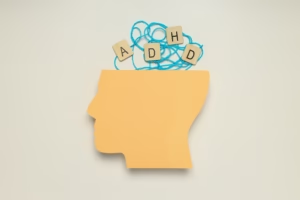In this week’s episode, AJ Huynh sat down with Sheree Morgan, exploring her life and professional journey. We delve deep into what motivates a counselor to choose this tough yet rewarding profession. Additionally, we will take a look at how mental health clinicians acquire their preferred modality or mental health approach. Let’s explore different types of counseling.

Two mental health experts have joined forces to make an uplifting podcast about well-being and personal growth. We use this show to share fresh and sometimes eye-opening ideas, helping listeners create a more fulfilling life. We’re not pushing any one viewpoint – instead, we’ll bring in guests from all walks of life to expand our understanding of the world. Come along with us as we explore different outlooks together.
Therapist Sheree Morgan discusses her unique approach combining psychoanalytic, cognitive behavioral, and gestalt techniques. She shares how her personal journey shaped her eclectic style and offers insights on finding the right therapeutic fit.

In today’s complex world, mental health has become an increasingly important aspect of our overall well-being. As more people seek help for various emotional and psychological challenges, it’s crucial to understand the different counseling available. This comprehensive guide will explore various counseling approaches, their benefits, and how to choose the right one for your needs.
Understanding the Importance of Counseling
Before delving into the specific types of counseling, it’s essential to recognize the value of seeking professional help. Counseling provides a safe, confidential space to explore your thoughts, feelings, and behaviors with a trained professional. It can help you develop coping strategies, improve relationships, and enhance your overall quality of life. I wrote an article on what is a counselor and the ultimate purpose of counseling, which is commonly misunderstood by clients and many counselors. Click here to explore more.

Types of Counseling: An Overview
There are numerous types of counseling, each with its unique approach and focus. Here, we’ll explore some of the most common and effective counseling methods:
Cognitive Behavioral Therapy (CBT)
Cognitive Behavioral Therapy is one of the most widely recognized and effective types of counseling. CBT focuses on identifying and changing negative thought patterns and behaviors that impact our emotions and actions. This approach operates on the principle that our thoughts, feelings, and behaviors are interconnected, and by altering one aspect, we can positively influence the others.Key features of CBT:
- Structured, goal-oriented approach
- Focus on present thoughts and behaviors
- Teaches practical coping skills
- Often includes homework assignments
CBT is particularly effective for treating anxiety, depression, and other mood disorders. It helps clients develop more adaptive thinking patterns and coping strategies through various techniques, such as the ABCDE model: A – Activating event or situation B – Beliefs about the event C – Consequences (emotional and behavioral) D – Disputing irrational beliefs E – Experiencing new, more balanced thoughts and emotions
Psychoanalytic Therapy
Rooted in Freudian theory, psychoanalytic therapy delves into the unconscious mind to uncover deep-seated conflicts and unresolved issues from childhood. This type of counseling emphasizes the importance of early life experiences in shaping our current behaviors and relationships.Key features of psychoanalytic therapy:
- Exploration of unconscious thoughts and motivations
- Focus on childhood experiences and their impact on present behavior
- Long-term, in-depth approach
- Emphasis on the therapeutic relationship
In psychoanalytic sessions, clients are encouraged to speak freely about their thoughts, feelings, and memories. The therapist listens attentively, looking for patterns and underlying themes that may reveal unconscious motivations or conflicts. This process, known as free association, can help individuals gain insight into their behavior and emotions.

Humanistic Therapy
Humanistic therapy focuses on the individual’s inherent capacity for growth and self-actualization. This approach emphasizes personal responsibility, self-awareness, and the importance of living in the present moment.
Key features of humanistic therapy:
- Client-centered approach
- Emphasis on personal growth and self-actualization
- Focus on the present rather than past experiences
- Non-judgmental, empathetic therapeutic relationship
Types of humanistic therapy include:
- Person-Centered Therapy: Developed by Carl Rogers, this approach emphasizes the therapist’s unconditional positive regard for the client, creating a supportive environment for self-exploration and growth.
- Gestalt Therapy: This experiential approach encourages clients to become more aware of their immediate experiences, emotions, and bodily sensations. Techniques like the “empty chair” exercise help individuals work through unresolved conflicts and gain new perspectives on their relationships.

Accelerated Resolution Therapy (ART)
Accelerated Resolution Therapy is a relatively new and innovative approach to counseling that has shown remarkable results, particularly in treating trauma and PTSD. This eye-movement-based therapy combines elements of cognitive behavioral therapy with rapid eye movement techniques to help individuals process and resolve traumatic memories quickly.
Key features of ART:
- Rapid resolution of traumatic memories
- Uses eye movements similar to REM sleep
- Does not require detailed discussion of traumatic events
- Often provides relief in just a few sessions
In an ART session, clients are guided to recall a traumatic memory while following the therapist’s hand movements with their eyes. This bilateral stimulation helps the brain process and store the memory differently, allowing individuals to recall the event without experiencing intense emotional distress.
Acceptance and Commitment Therapy (ACT): Embracing Thoughts and Emotions
Acceptance and Commitment Therapy, or ACT, is a powerful type of counseling that combines mindfulness skills with the practice of self-acceptance. Developed within the field of behavioral analysis, ACT is considered a “third wave” cognitive-behavioral approach. This type of counseling is particularly effective for treating anxiety, depression, OCD, and other mental health conditions. I wrote an article on how to approach uncomfortable thoughts using ACT concepts and techniques. Click here to read more.
Key features of ACT:
- Focus on accepting uncomfortable thoughts and feelings rather than fighting them
- Emphasis on aligning actions with personal values
- Use of mindfulness techniques to increase psychological flexibility
- Goal of creating a rich and meaningful life while accepting the inevitable pain that comes with it

Dialectical Behavior Therapy (DBT)
Dialectical Behavior Therapy is a type of cognitive-behavioral therapy specifically designed to treat individuals with borderline personality disorder and other complex emotional issues. DBT combines standard cognitive-behavioral techniques with mindfulness strategies.Key features of DBT:
- Focus on emotional regulation and interpersonal effectiveness
- Teaches mindfulness skills
- Combines individual therapy with group skills training
- Emphasis on balancing acceptance and change
DBT is particularly effective for individuals struggling with self-harm, suicidal thoughts, and intense emotional experiences. It helps clients develop skills in four key areas: mindfulness, distress tolerance, emotion regulation, and interpersonal effectiveness.
Family Therapy
Family therapy involves working with multiple family members to address relationship issues, improve communication, and resolve conflicts. This type of counseling recognizes that individual problems often stem from family dynamics and can be best addressed within the family context.Key features of family therapy:
- Involves multiple family members in sessions
- Focus on improving family dynamics and communication
- Addresses both individual and family-wide issues
- Can be short-term or long-term, depending on the family’s needs
Family therapy can be particularly helpful for issues such as parent-child conflicts, marital problems, and the impact of mental illness or addiction on the family unit.
Solution-Focused Brief Therapy (SFBT)
Solution-Focused Brief Therapy is a goal-directed approach that focuses on finding solutions rather than dwelling on problems. This type of counseling emphasizes the client’s strengths and resources to create positive change in a relatively short time frame.
Key features of SFBT:
- Focus on solutions rather than problems
- Short-term approach (typically 5-8 sessions)
- Emphasis on the client’s strengths and resources
- Goal-oriented and future-focused
SFBT is particularly effective for individuals seeking quick results and those who prefer a more action-oriented approach to therapy.
Narrative Therapy
Narrative therapy is based on the idea that people’s lives and relationships are shaped by the stories they tell about themselves. This approach helps individuals rewrite their personal narratives to create more empowering and positive life stories.Key features of narrative therapy:
- Exploration of personal stories and their impact on identity
- Separation of the person from the problem
- Emphasis on reauthoring life stories
- Collaborative approach between therapist and client
Narrative therapy can be particularly helpful for individuals struggling with self-esteem issues, life transitions, or those seeking to redefine their personal identities.

Art Therapy
Art therapy combines creative expression with psychological theory to promote healing and personal growth. This type of counseling uses various art forms, such as drawing, painting, or sculpting, as a means of communication and self-expression.
Key features of art therapy:
- Non-verbal expression of emotions and experiences
- Integration of creative process with psychological insight
- Suitable for all age groups
- Can be used in conjunction with other therapeutic approaches
Art therapy can be particularly beneficial for individuals who struggle with verbal expression, children, or those dealing with trauma or emotional difficulties.
Choosing the Right Type of Counseling
With so many types of counseling available, it’s essential to find an approach that aligns with your needs and preferences. Here are some tips for selecting the right type of counseling:
- Identify your goals: Consider what you hope to achieve through counseling. Are you looking to address specific symptoms, improve relationships, or gain deeper self-understanding?
- Research different approaches: Take the time to learn about various types of counseling and their underlying philosophies. This knowledge will help you make an informed decision.
- Consider your personal preferences: Do you prefer a more structured approach like CBT, or are you drawn to the insights of psychoanalytic therapy? Think about what resonates with you.
- Consult with professionals: Many therapists offer initial consultations where you can discuss their approach and see if it feels like a good fit. Don’t be afraid to ask questions about their methods and experience.
- Be open to trying different approaches: What works for one person may not work for another. Be willing to explore different types of counseling if your initial choice doesn’t feel right.
- Trust your instincts: The therapeutic relationship is crucial for successful counseling. Look for a therapist with whom you feel comfortable and understood, regardless of their specific approach.
- Consider practical factors: Think about logistics such as session length, frequency, cost, and location when choosing a type of counseling.
Conclusion
The world of counseling offers a rich array of approaches to support mental health and personal growth. From the structured techniques of Cognitive Behavioral Therapy to the rapid trauma resolution of Accelerated Resolution Therapy, and from the deep insights of psychoanalysis to the creative expression of art therapy, there’s a type of counseling to suit every individual’s needs.
By understanding these different approaches, you can make informed decisions about your mental health care and embark on a journey of healing and self-discovery tailored to your unique circumstances. Remember that finding the right type of counseling may take time and experimentation, but the potential benefits for your mental well-being are immeasurable. Whether you’re dealing with specific mental health issues, relationship problems, or simply seeking personal growth, there’s a type of counseling that can help you achieve your goals.
Don’t hesitate to reach out to mental health professionals and explore the various options available to you. Your journey to better mental health and a more fulfilling life begins with taking that first step towards finding the right type of counseling for your needs.




